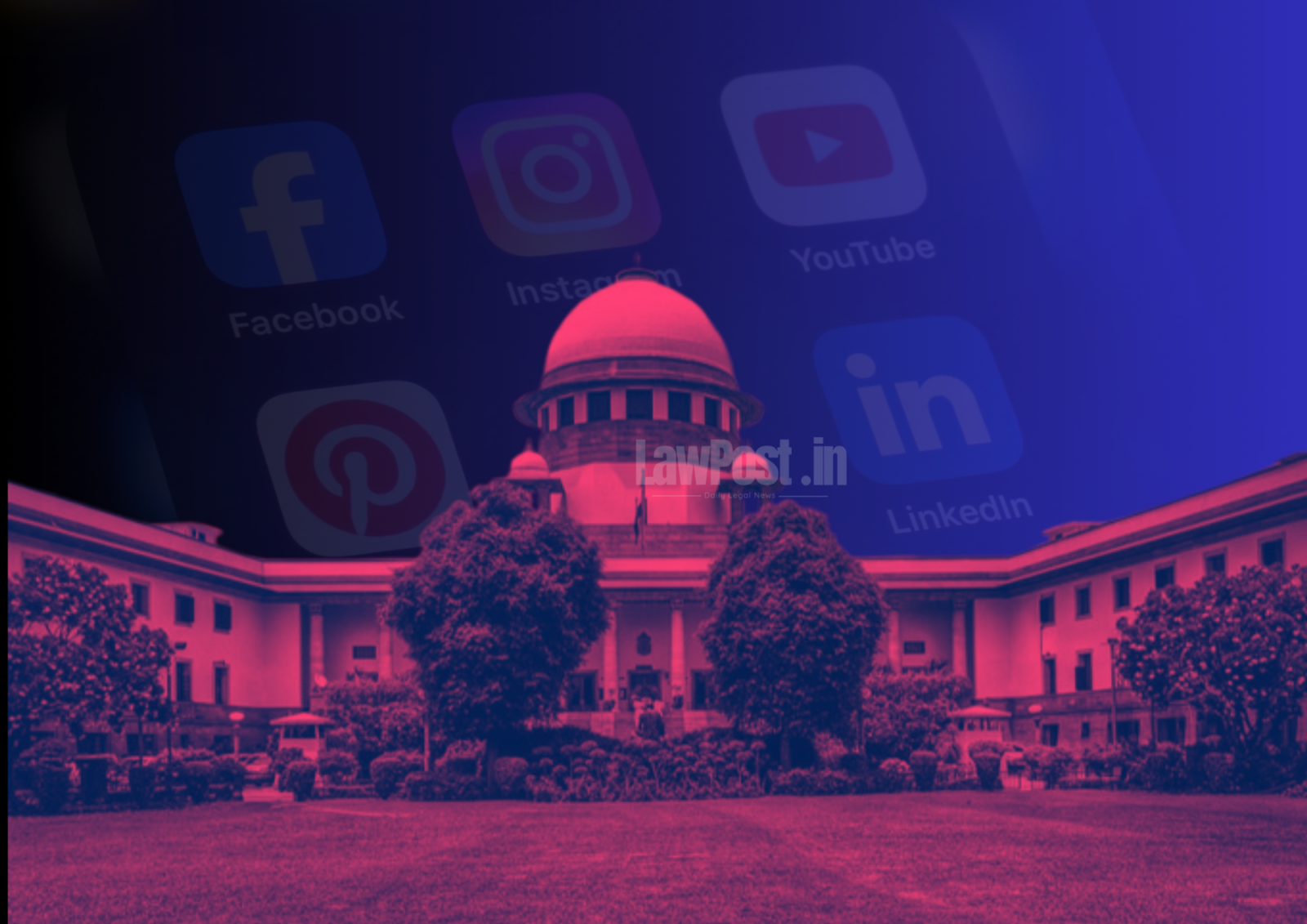The Supreme Court of India has raised concerns over the practice of removing social media posts without notifying the account owner. A Bench of Justices BR Gavai and Augustine George Masih, while hearing a plea filed by the Software Freedom Law Centre, remarked that if a post can be traced to an identifiable individual, they must be given an opportunity to be heard before any takedown.
“Prima facie, we both feel that if there is an identifiable person, then notice should be issued,” the Bench stated.
The petition highlighted how intermediaries like X (formerly Twitter) remove posts on government directives without informing the person who originally posted them. Senior Advocate Indira Jaising, representing the petitioner, argued that the current legal framework allows authorities to serve takedown notices either to the intermediary or the individual, often excluding the latter.
“This is happening because of the word ‘or’ in the law. The rule further says such a notice is confidential, which is a nail in the coffin,” Jaising contended. “I am not disputing the power to take it down, but the person who put it out must be heard. The challenge is under Article 19(1)(a).”
The Court acknowledged her argument, stating, “If a person is identifiable, then he has to be given notice, and if not, then the intermediary. It can be read in that manner also.”
Jaising also cited the case of Senior Advocate Sanjay Hegde, whose Twitter account was suspended for years without any hearing. “Yes, a senior lawyer of this court, Mr Sanjay Hegde’s X account was taken down. No notice, and for years it was not made online,” she pointed out.
Following these discussions, the Supreme Court has sought a response from the Central government on the issue, setting the stage for a significant debate on digital free speech and due process.
- Home
- Top Stories
- Supreme Court of India
- High Courts
- Allahabad High Court
- Andhra High Court
- Bombay High Court
- Calcutta High Court
- Chattisgarh High Court
- Delhi High Court
- Gauhati High Court
- Gujarat High Court
- High Court of Meghalaya
- Himachal Pradesh High Court
- Jammu & Kashmir High Court
- Jharkhand High Court
- Karnataka High Court
- Kerala High Court
- Madhya Pradesh High Court
- Madras High Court
- Manipur High Court
- Orissa High Court
- Patna High Court
- Punjab-Haryana High Court
- Rajasthan High Court
- Sikkim High Court
- Telangana High Court
- Tripura High Court
- Uttarakhand High Court
- Tribunals
- Competition Commission of India
- Appellate Tribunal For Electricity
- Authority Tribunal
- Central Administrative Tribunal
- Central Electricity Regulatory Commission
- Central Information Commission
- Company Law Board
- Consumer Disputes Redressal
- Copyright Board
- Custom, Excise & Service Tax Tribunal
- Customs, Excise and Gold Tribunal
- Debt Recovery Appellate Tribunal
- Income Tax Appellate Tribunal
- Intellectual Property Appellate Board
- Monopolies and Restrictive Trade Practices Commission
- National Company Law Appellate Tribunal
- National Green Tribunal
- Securities Appellate Tribunal
- State Taxation Tribunal
- Telecom Disputes Settlement Tribunal
- Trademark Tribunal
- Home
- Top Stories
- Supreme Court of India
- High Courts
- Allahabad High Court
- Andhra High Court
- Bombay High Court
- Calcutta High Court
- Chattisgarh High Court
- Delhi High Court
- Gauhati High Court
- Gujarat High Court
- High Court of Meghalaya
- Himachal Pradesh High Court
- Jammu & Kashmir High Court
- Jharkhand High Court
- Karnataka High Court
- Kerala High Court
- Madhya Pradesh High Court
- Madras High Court
- Manipur High Court
- Orissa High Court
- Patna High Court
- Punjab-Haryana High Court
- Rajasthan High Court
- Sikkim High Court
- Telangana High Court
- Tripura High Court
- Uttarakhand High Court
- Tribunals
- Competition Commission of India
- Appellate Tribunal For Electricity
- Authority Tribunal
- Central Administrative Tribunal
- Central Electricity Regulatory Commission
- Central Information Commission
- Company Law Board
- Consumer Disputes Redressal
- Copyright Board
- Custom, Excise & Service Tax Tribunal
- Customs, Excise and Gold Tribunal
- Debt Recovery Appellate Tribunal
- Income Tax Appellate Tribunal
- Intellectual Property Appellate Board
- Monopolies and Restrictive Trade Practices Commission
- National Company Law Appellate Tribunal
- National Green Tribunal
- Securities Appellate Tribunal
- State Taxation Tribunal
- Telecom Disputes Settlement Tribunal
- Trademark Tribunal
Home
Supreme Court of India
Can Social Media Posts Be Removed Without Notice? Supreme Court Asks Centre
Supreme Court of IndiaTop Stories Can Social Media Posts Be Removed Without Notice? Supreme Court Asks Centre

Share
Subscribe to LawPost
Subscribe to our free newsletter to get all the latest legal news instantly!
Related Articles
Supreme Court Orders 30% Reservation for Women in All State Bar Councils
In a landmark move to correct the deep-rooted gender imbalance in the...
ByLawPostDecember 5, 2025Supreme Court Says Muslim Women Can Take Back All Marriage Gifts from Their Husbands
In a landmark ruling aimed at strengthening the financial rights and dignity...
ByLawPostDecember 4, 2025One Year as Judge Equals Five Years as Advocate Says Supreme Court
The Supreme Court on Tuesday observed that the workload of a judge...
ByLawPostSeptember 25, 2025Speaking Bengali Cannot Be Ground to Presume Someone is Bangladeshi Says Supreme Court
The Supreme Court on Friday questioned the practice of treating Bengali-speaking persons...
ByLawPostAugust 30, 2025






